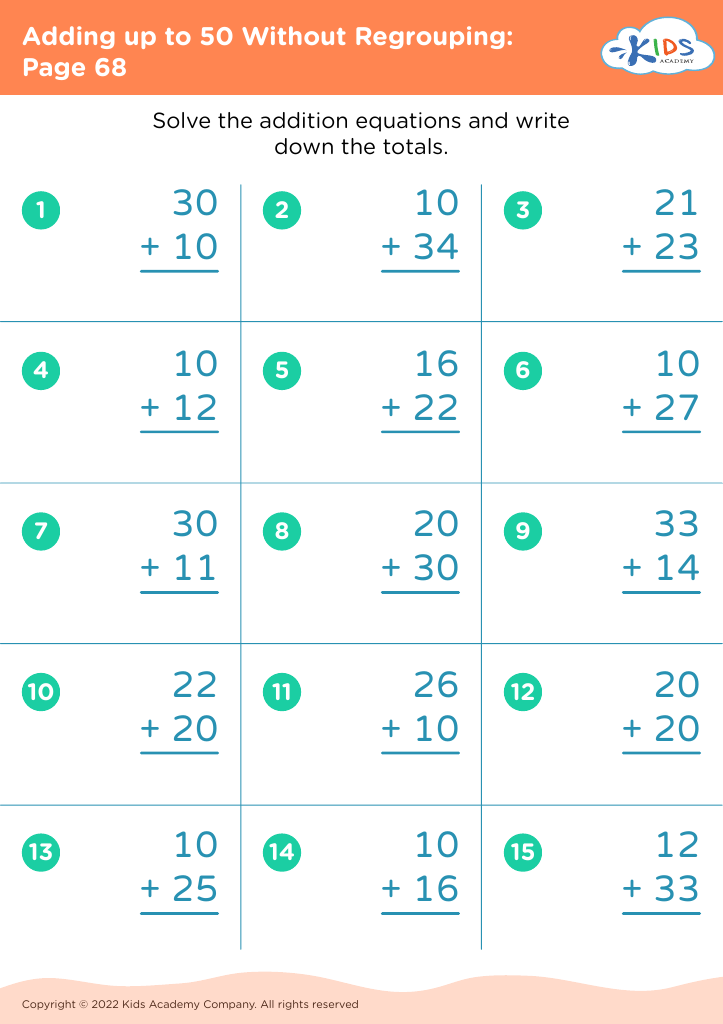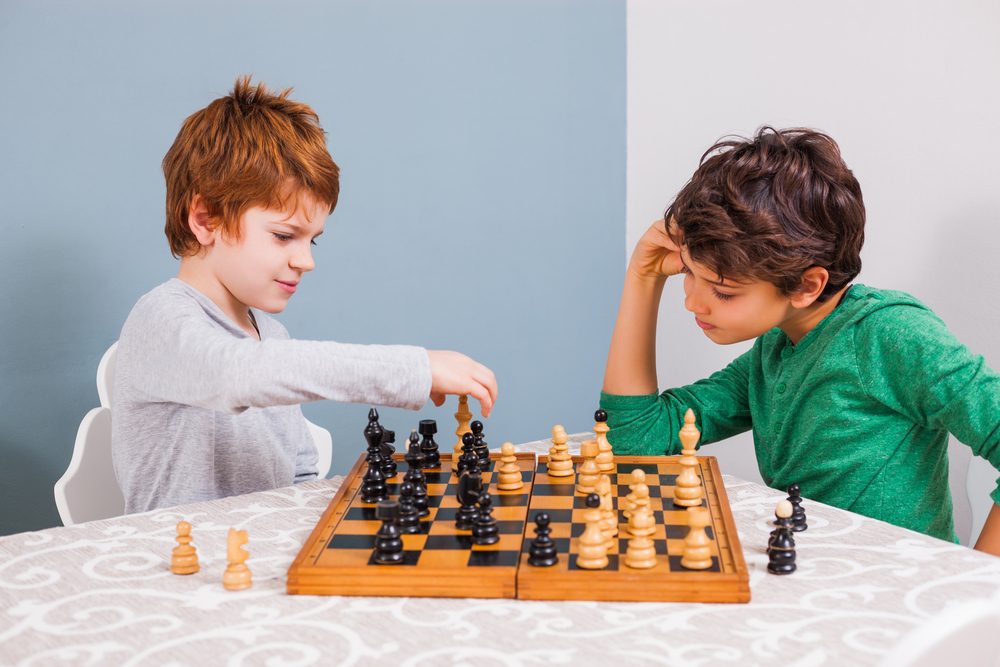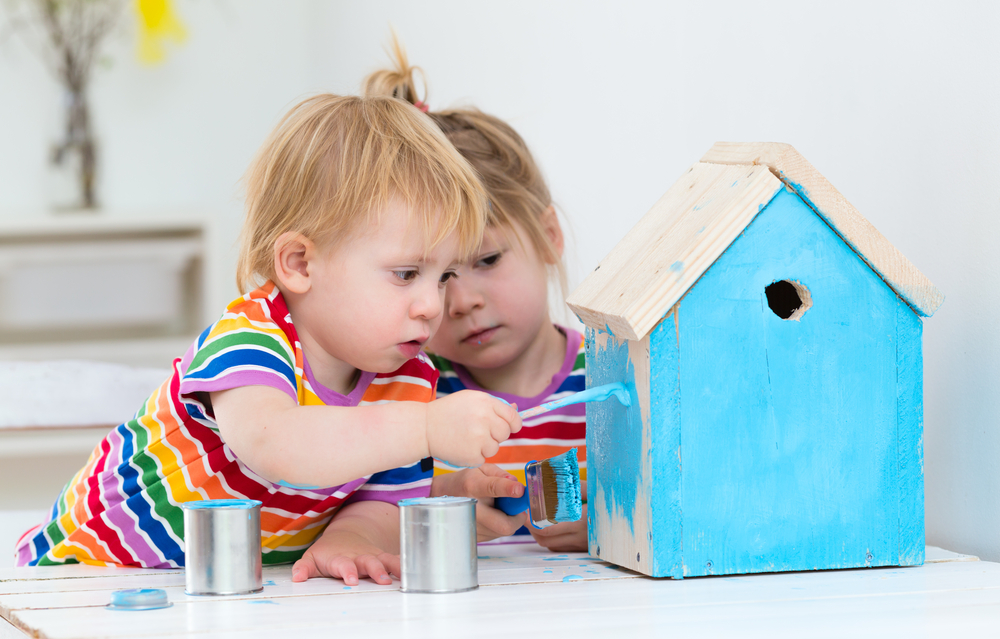Developing observation skills Worksheets for Ages 7-9
8 filtered results
-
From - To
Enhance your child's observation skills with our engaging worksheets designed specifically for ages 7-9. These carefully crafted exercises encourage keen observation, critical thinking, and attention to detail through a variety of fun activities. Students will enjoy completing unique tasks such as spotting differences, identifying patterns, and answering questions that promote analytical thinking. Our worksheets not only support academic growth but also ignite children's curiosity about their surroundings. Designed for ease of use, these printable resources can be seamlessly integrated into daily learning routines or used for extra practice at home. Start developing strong observation skills today and watch your child's confidence soar!


Sink or Float Printable
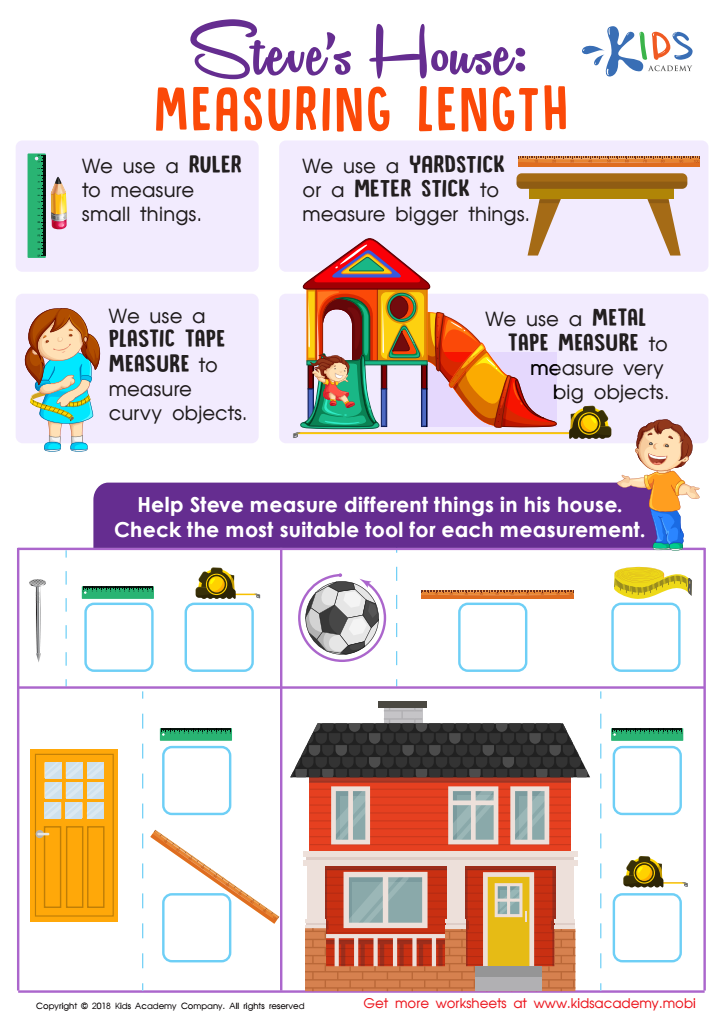

Steve's House: Measuring Length Worksheet
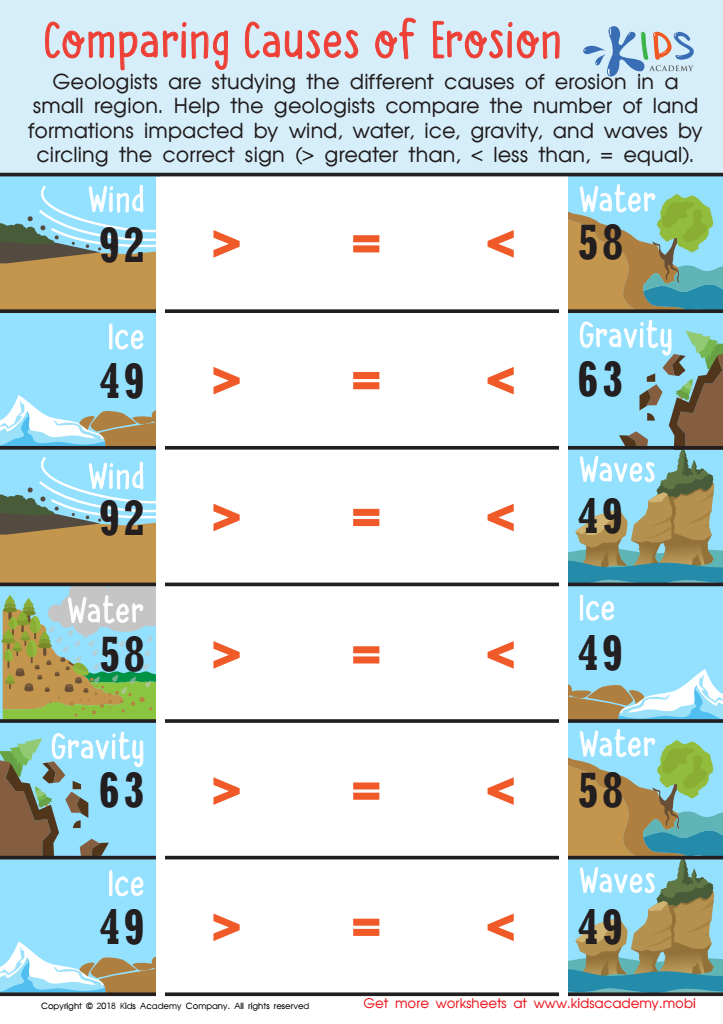

Comparing Causes of Erosion Worksheet


Light and Sound: Assessment 2 Worksheet
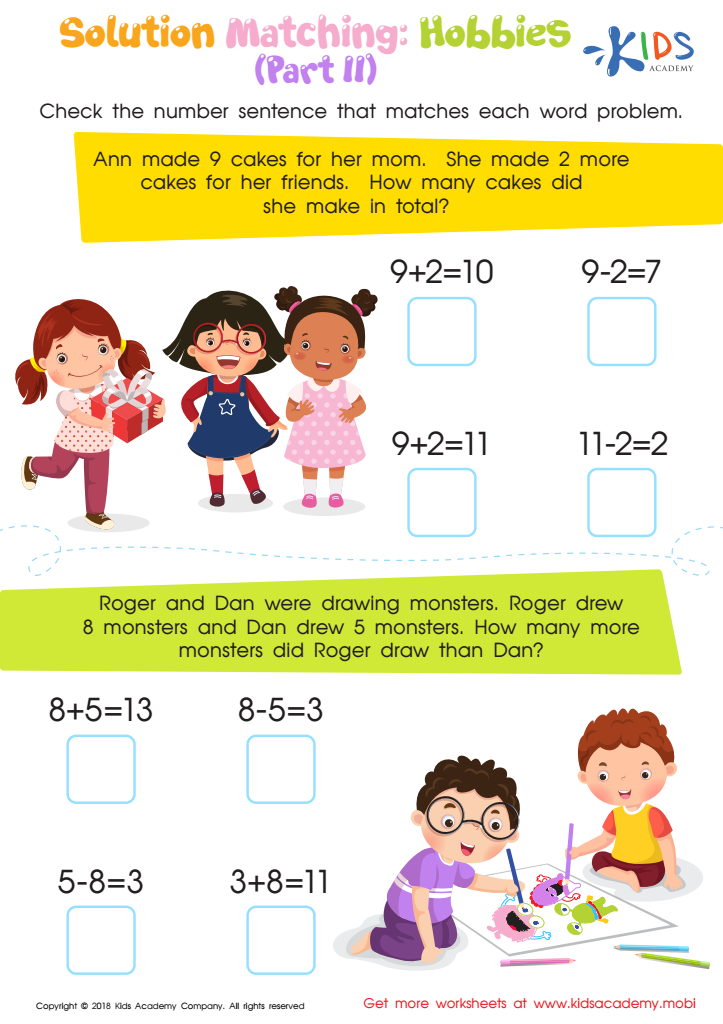

Solution Matching: Hobbies. Part 2 Worksheet
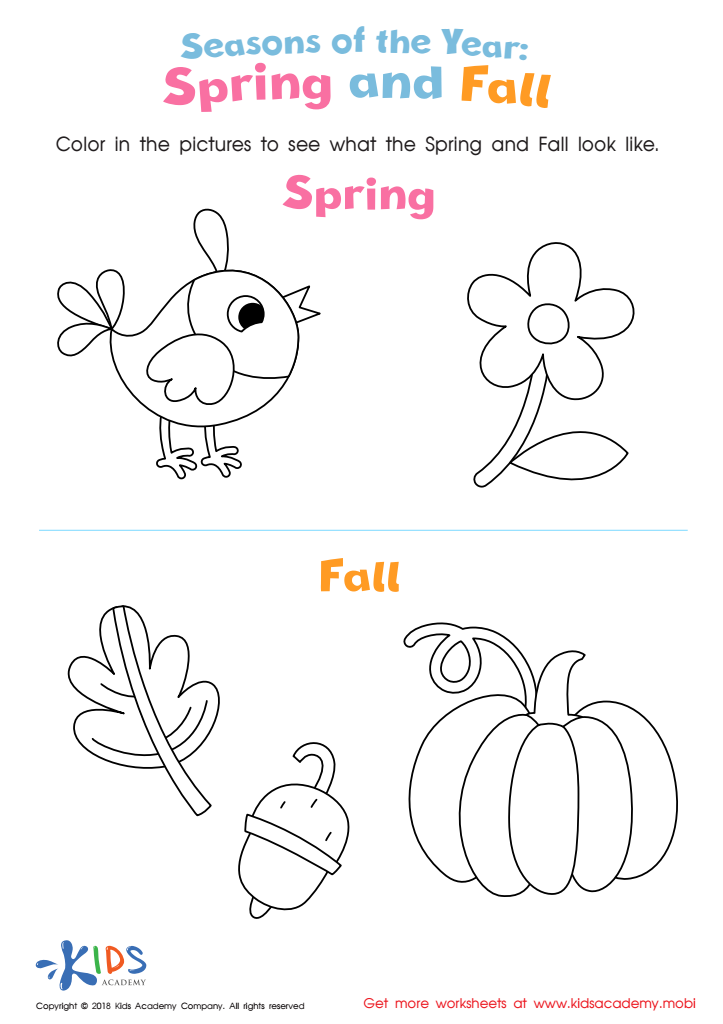

Spring and Fall Worksheet
Developing observation skills in children aged 7-9 is crucial for their cognitive, social, and emotional growth. At this stage, children are increasingly engaging with their environment, and honing their ability to observe helps them interpret the world around them. Strong observation skills boost critical thinking and problem-solving abilities, allowing children to make connections between different concepts, enhancing their learning experiences.
Moreover, effective observation encourages curiosity and creativity. When children learn to pay attention to details and ask questions about what they observe, they become active learners rather than passive recipients of information. This engagement fosters a deeper understanding of subjects, from science to art, and prepares them for more complex topics in the future.
Additionally, developing observation skills supports emotional intelligence. By observing non-verbal cues in others, children learn empathy and develop stronger social skills, such as teamwork and communication. As they navigate friendships and social interactions, these skills become vital for their personal development.
Lastly, strong observation capabilities can contribute to academic success, as students with adept observational skills often excel in assessments and classroom participation. Therefore, parents and teachers play a significant role in nurturing these abilities to help children thrive both academically and socially.
 Assign to My Students
Assign to My Students



